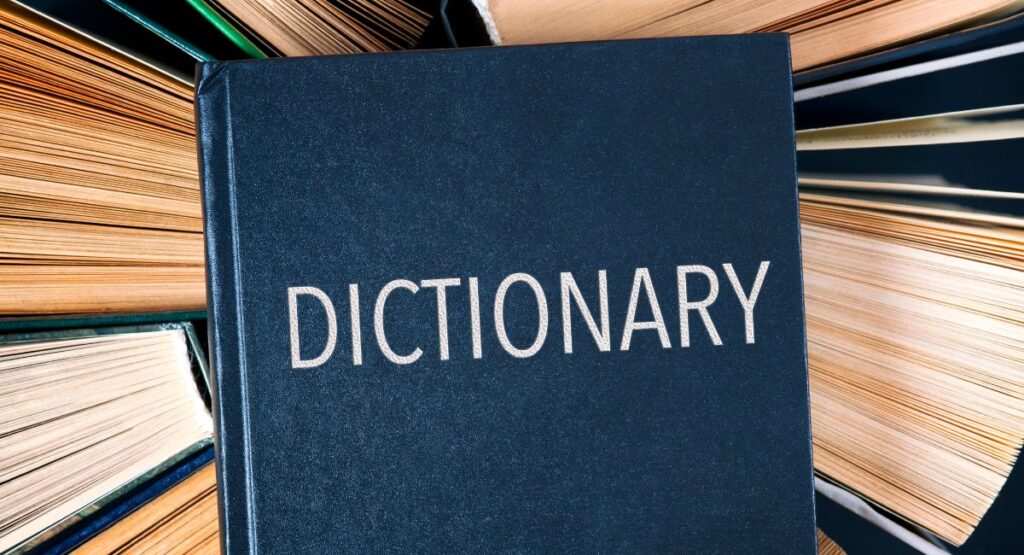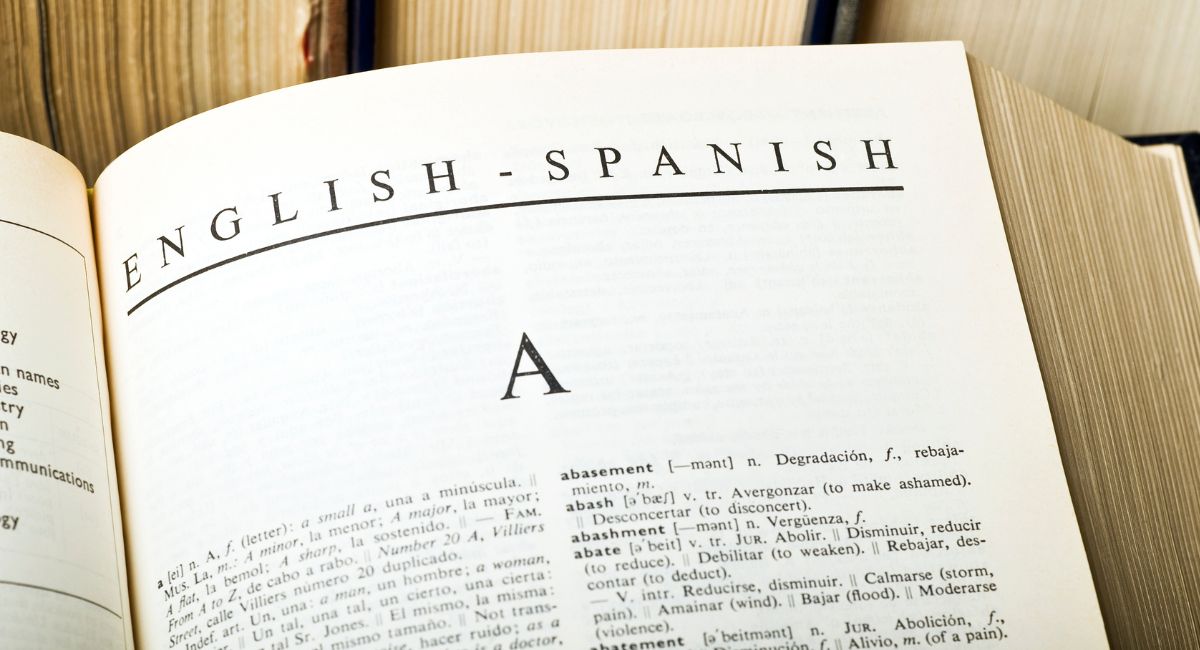Many of us fail to recognize the importance of dictionaries in everyday life. Not only do dictionaries help us find the meaning of words, but they also help preserve and understand other languages. Dictionaries facilitate communication between people, businesses, countries, and more.
Today’s article is dedicated to International Dictionary Day and what makes dictionaries essential in the 21st century.
Table of Contents
The History of International Dictionary Day

People celebrate International Dictionary Day on October 16th every year in honor of Noah Webster. He is often referred to as the Father of the American Dictionary.
Noah Webster was an American lexicographer (a person who compiles dictionaries), English-language spelling reformer, political editor, writer, and author. It was Webster’s “Blue-back Speller” books that were used to teach over five generations of Americans how to read and spell.
Webster published his first dictionary in 1806, the Compendious Dictionary of the English Language. He took part in the publication of the Merriam-Webster dictionary, which is still popular in the US. Webster was also behind the popularity of certain words in the US, and he helped establish the Copyright Act of 1831, a significant revision of US copyright law.
People appointed International Dictionary Day to October 16th, Webster’s birthday, to honor these and many other contributions to the English language.
Related Post: Essential Emerging Markets and the Importance of Languages in Business
The Importance of Dictionaries
Did you know that dictionaries remain one of the most essential tools for foreign language learning and translation? Dictionaries offer the opportunity to expand your vocabulary in your native language and learn a foreign language. They also teach you correct word spelling and assist with reading comprehension. Not only that, but dictionaries can also help you analyze different word meanings and learn new words. But dictionaries are also beneficial for professional translators.
Dictionaries are also important for professional translators and their work. These word compendiums are available in a broad range of languages, and they help a translator understand the fuller meaning of each word.
Another beneficial function of dictionaries is that they offer a snapshot of language at a particular time in history. They allow you to see how language has changed over time. The evolution of language and words takes place over time. For example, American English had already begun to change by the time the US took its first census in 1790.
By this time, American English had already diverged from British English, and the process has continued over the centuries. Dictionaries from that time period incorporated these changes, and they persist in the dictionaries we use today.
Related Post: How to Become a Translator
Books for Translators: Continuous Education and Self-Improvement
The Evolution of Dictionaries

Just as language has evolved over many centuries, so have dictionaries. The earliest “dictionaries” were created in Syria about 2300 BC, about 4000 years ago. These dictionaries were more like lists of words created during the Akkadian Empire (one of the many civilizations of Mesopotamia). These documents were bilingual word glossaries that were used in translation.
The earliest monolingual (dedicated to one language) dictionary is from the Chinese. It’s called the Erya and was a dictionary, thesaurus, glossary, and encyclopedia. This was one entire work that contained 2094 entries, divided between nineteen sections based on a subject matter.
The first Sanskrit dictionary was developed in the 4th century BC, called the Amarakosa. The work contained more than 10,000. Another Chinese dictionary was written in 682 AD, while the oldest Japanese compendium was the Tenrei Bansho Maigi, written in 833 AD.
Latin glossaries date back to 1287, while the first Egyptian dictionary was written in the 14th century. Arabic dictionaries originated in the 8th century, while creators produced the first English dictionaries by the 17th century.
Dictionaries have also taken many forms over the centuries, from tablets and scrolls to books. Today’s modern dictionaries can be found in book form, though they’re also available online through programs and apps in digital format. Electronic dictionaries are usually in database form, so there’s no limit to their size.
Popular online dictionaries include the following:
- Oxford Dictionary: is a free online dictionary for anyone using British or American English.
- Merriam-Webster Dictionary: is a free online dictionary for those using American English.
- The Free Dictionary: is another free online dictionary that focuses on American English and is accessible in 14 languages.
- Cambridge Dictionary: is also a free online dictionary, and it’s recommended as the best British & American English dictionary for those learning English.
- Collins Dictionary: is another free online dictionary for the English language, also recommended for English learners, in addition to teachers and translators.
International Dictionary Day & Language Localization
There’s no question that dictionaries are essential for translators. Not only are these crucial tools for language translation, but they’re also a part of the language localization process. For instance, translators may work on projects translating older documents. Such projects can be challenging due to the antiquated words found in the document.
The work is only possible by using a dictionary. The dictionary shows the changes in semantics and word meanings over time, alternative meanings, and more. Therefore, the translator can find the full meanings of words, ensuring their translations are as correct as possible.
In addition, dictionaries allow translators to enlarge their vocabulary. They don’t have to rely solely on their memories for word meanings. Again, the translation is correct and complete in this instance.
Dictionary Day Activities
Are you looking for ways you and your team can celebrate and have fun on International Dictionary Day? Then try these fun activities that are based on the dictionary of your choice!
1. Dictionary Word Hunt
Challenge your and your team’s word skills with Dictionary Word Hunt! The game tests players’ knowledge and skills as a scavenger. Simply create a list of fun questions that must be answered with a single word! What could be more fun and challenging? Create a list of questions in another language!
The individual or team who gets their word list done first wins the game!
2. The Multiple Meanings Game
Here’s another game that’s more challenging when done in another language! The Multiple Meanings game is a great activity that helps your team hunt for definitions.
Create a list of words that can have alternative meanings. The team or individual who completes their list first wins! You can make the game more challenging by having a time limit for word searches.
Who will win this fun game of word meanings?
3. Virtual Spelling Bee
Another idea for fun on International Dictionary Day is conducting a virtual spelling bee! You and your team will have a ton of fun playing this game!
Create a list of words in the language of your choice and see who can spell the most words correctly! Again, you may want to make this a little more challenging by setting a time limit for spelling the words.
Learning new words and expanding your vocabulary have never been more important than they are today. We live in a multicultural world where we’re almost daily in contact with others around the world. Correct use of language is essential for meaningful conversations with one another.
These are some ideas that you and your team can use to have some fun celebrating International Dictionary Day!
Conclusion
Dictionaries are crucial to language preservation, learning, and translation. Without these lexicons and word compendiums, it would be much harder to learn and correctly use our native languages or to learn a foreign language correctly.
Why not expand your vocabulary today by using a dictionary (book, online, app, and more) to study the richness of your native language, or start learning a new language to celebrate International Dictionary Day?
